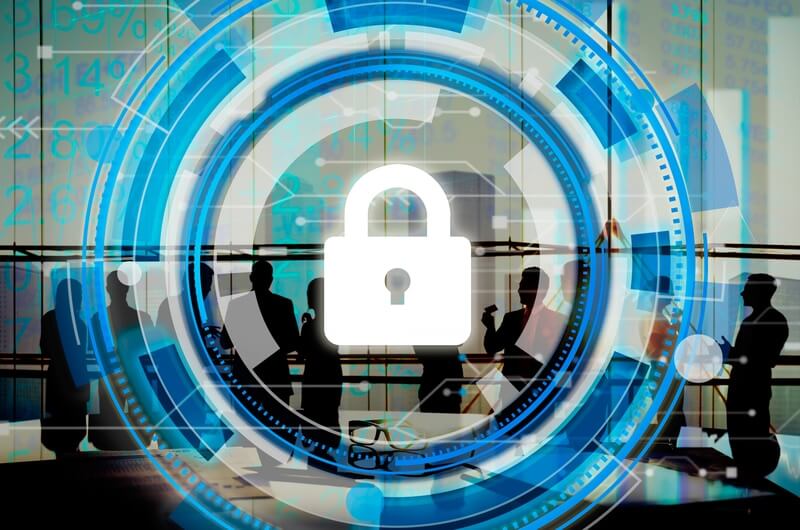Cybersecurity 101: Do You Know The Basics?

Cybersecurity breaches now cost companies $200,0000 per attack. They force many small businesses to make painful choices such as laying off staff or even closing. So, it's more important than ever to know the basics of cybersecurity.
Run through this list of cybersecurity basics to make sure you and your company are safe from hackers.
Secure All Accounts
Cybercriminals target victims through email, social media, and other accounts. Usually, they try to gain access to login credentials. From here, they imitate the victim to fraud businesses out of money or steal other valuable resources. Sometimes, they even use ransomware to lock them out of crucial files.
You can increase the security of your accounts by:
- Updating all passwords to more secure versions
- Using a password manager to store passwords
- Changing passwords every 30-60 days
- Eliminating unnecessary accounts
Use VPN for All Internet Use
Nearly all cybersecurity breaches occur over the internet. Hackers find ways to access your network connection to get into your accounts or devices. VPNs are the best way to fight this.
With a VPN (a virtual private network), your connection to the internet is secure because of encryption. Hackers and other snoopers won't be able to monitor your internet activity.
It's easy enough to do too:
- Subscribe to a VPN service
- Download the application
- Set a VPN to run at all times and on all devices
It takes a couple of minutes but ensures online privacy.
Don't Get Scammed
Scams don't target only the elderly. Even the savviest millennials can get scammed. And it doesn't matter how much you protect yourself or how many pieces of security software you use. It all falls on awareness and alertness.
Avoid scams by:
- Recognizing suspicious emails and websites
- Scanning all files before downloading
- Verifying all contacts are who they say they are
- Reporting potential scams to admins and government agencies
Keep Backups
Ransomware attacks are prevalent right now. This year, criminals have stolen millions of dollars using them. Usually, the news covers ransomware hitting governments or big organizations. But even individual users are at risk.
Many could prevent these attacks with secure backups. If you have a backup, you don't have to worry about getting locked out of your files. Set all your devices to regular backup both to the cloud and an external device.
It's important to note that backup doesn't remove the risk of hackers exposing your data. That leads us to another cybersecurity essential…
Encrypt Your Files
Any file vital to you is a target for cybercriminals. Use file encryption services to keep cybercriminals and others without permission out.
Encrypt all crucial files that you keep on your devices. Also, don't forget to encrypt the data you upload to the cloud or back up to external drives.
Limit Administrator Privileges
Running your computer/workstation on admin mode opens it up to potential security threats. These can then spread to affect all devices on the network. And if you're doing everyday work, your computer does not need to be in admin mode.
Likewise, only IT needs access to admin privileges. It's easy for people to delete core system files by accident. Prevent these mistakes from happening by limiting user access.
Schedule Auto-Updates
Each day, cybercriminals create 300,000 new pieces of malware. That means your devices face new threats every day. Fortunately, most developers are aware of this. They work to shield you from new threats. And, when an attack does create a vulnerability for an app or operating system, developers issue a security patch.
Either way, you need to make sure everything is always up to date. Schedule updates to autorun on both your computer and mobile devices. Keep an eye on tech news as well to see if there are any urgent updates you need to install right away.
Use Pre-Installed Security Tools
Your computer has built-in security tools like Windows Defender and Firewall. Run these at all times in the background. Have them also perform full scans while you're not using your computer.
Also, use antivirus and antimalware software. You can also add a browser extension to promote safe internet use.
Have a Plan in Case of Cyberattacks
Sometimes no matter what you do, hackers still find their way in. It happens even to the biggest companies like Apple and Google. When cyberattacks do occur, you need to be ready. You need answers to these essential questions:
- What software tools do you need?
- How do you track breached records?
- Do you have IT support?
- How do you restore data?
Make sure everybody else from family members to coworkers know this plan. It minimizes damage and prevents widespread attacks from happening.
Learn the Basics of Cybersecurity
With cybersecurity, a little bit of effort can go a long way. Learn cybersecurity basics and apply them to all your devices or online accounts. Don't forget to educate your friends, family, and coworkers as well. Together, you can create a safer internet experience for everyone.
839GYLCCC1992


 (2 votes, average: 4.50 out of 5)
(2 votes, average: 4.50 out of 5)
Leave a Reply